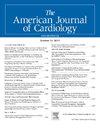Veno-Arterial Extracorporeal Membrane Oxygenation for Cardiogenic Shock in a Jehovah's Witness Patient
IF 2.3
3区 医学
Q2 CARDIAC & CARDIOVASCULAR SYSTEMS
引用次数: 0
Abstract
Veno-arterial extracorporeal membrane oxygenation (V-A ECMO) may support hemodynamics of patients experiencing cardiogenic shock refractory to medical management. We present a 62-year-old Jehovah's Witness female with a history of smoking, obstructive sleep apnea, and anemia presenting with acute myocardial infarction and ensuing cardiogenic shock that required V-A ECMO support due to persistent hemodynamic instability and hypoxemia. Meticulous care to blood saving strategies were employed contributing to the successful management of the patient. These strategies included minimizing frequency of laboratory testing, use of micro-pediatric tubes, meticulous tissue handling to minimize blood loss during decannulation and administration of supplementary agents (vitamin B12, folic acid, iron, and erythropoietin) in consideration with the ethical concerns of the patients and their family. During the patient's hospital stay, their hemoglobin decreased from 14.6 mg/dL to as low as 7.6 mg/dL 3 days after decannulation. To our knowledge, this is the third reported case of V-A ECMO support in a Jehovah's Witness patient and the first reported critical care case. In conclusion, employing a bloodless strategy and adhering to recommended practices can yield positive outcomes for patients who do not accept blood transfusions requiring V-A ECMO.
静脉-动脉体外膜氧合治疗一名耶和华见证会患者的心源性休克。
静脉-动脉体外膜氧合(V-A ECMO)可能支持心脏源性休克患者的血流动力学治疗。我们报告了一位62岁的耶和华见证会女性,她有吸烟史,阻塞性睡眠呼吸暂停,贫血,表现为急性心肌梗死和心源性休克,由于持续的血流动力学不稳定和低氧血症,需要V-A ECMO支持。精心护理的血液保存策略有助于病人的成功管理。这些策略包括尽量减少实验室检测的频率,使用微型儿科试管,仔细处理组织以尽量减少脱管期间的失血,并在考虑到患者及其家属的伦理问题的情况下给予补充药物(维生素B12、叶酸、铁和促红细胞生成素)。在患者住院期间,他们的血红蛋白从14.6 mg/dL降至脱管后3天的7.6 mg/dL。总之,采用无血策略和坚持推荐的做法可以为不接受输血需要V-A ECMO的患者带来积极的结果。
本文章由计算机程序翻译,如有差异,请以英文原文为准。
求助全文
约1分钟内获得全文
求助全文
来源期刊

American Journal of Cardiology
医学-心血管系统
CiteScore
4.00
自引率
3.60%
发文量
698
审稿时长
33 days
期刊介绍:
Published 24 times a year, The American Journal of Cardiology® is an independent journal designed for cardiovascular disease specialists and internists with a subspecialty in cardiology throughout the world. AJC is an independent, scientific, peer-reviewed journal of original articles that focus on the practical, clinical approach to the diagnosis and treatment of cardiovascular disease. AJC has one of the fastest acceptance to publication times in Cardiology. Features report on systemic hypertension, methodology, drugs, pacing, arrhythmia, preventive cardiology, congestive heart failure, valvular heart disease, congenital heart disease, and cardiomyopathy. Also included are editorials, readers'' comments, and symposia.
 求助内容:
求助内容: 应助结果提醒方式:
应助结果提醒方式:


